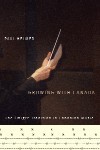
Growing With Canada: The Émigré Tradition In Canadian Music
Paul Helmer
McGill-Queen`s University Press
$49.95
cloth
388pp
978-0-7735-3581-7
Helmer identifies 121 musicians who left Europe between 1933 and 1948 and eventually settled in Canada. These he casts in a heroic glow. They are not “exiles,” but “émigrés” who exercised free will and chose to leave: “In that moment the ‘exile’ transforms himself or herself into an émigré, thereby freeing himself or herself from tyranny, and a new life becomes possible. Each time this occurs it is a victory for humanity […].”
This rather romantic perspective informs the central theme of the book, what Helmer calls the “‘exile as émigré’ model.” He proposes this paradigm in opposition to the standard Exilforschung (“Exile studies”), a sub-genre of literary studies that examines the cost of the Hitler’s cultural policies to Germany and its artists. His positive spin focuses not on Europe’s loss, but on the musicians’ contributions to their new-found home.
The narrative that follows, however, cannot quite bear the weight of this theoretical framework. The structure of Growing with Canada reflects its subjects’ life journeys, and Helmer struggles to condense the experiences of 121 individuals into a coherent story. Over seven chapters, Helmer traces the musicians’ journeys from their European homes through statelessness to their arrival and new lives in Canada. In a brief epilogue, a few émigrés reflect on visits back to their homelands.
In the early chapters, Helmer groups together common experiences – “The Decision to Leave,” “Choosing Canada,” “The Camp Boys” – and spills them onto the page. But the profusion of anecdotes only confuses the reader. Names appear briefly at first only to resurface halfway through the book. The final chapter is equally overwhelming: in only 46 pages, the reader must wade through 59 mini-biographies of performers, teachers, administrators, impresarios, and benefactors who participated in Canada’s musical life.
In the middle chapters, Helmer finds his stride. Here the author turns his attention to two central characters, Arnold Walter and Helmut Blume, and their roles in reforming postsecondary music education in Canada. Between 1944 and 1952, Walter struggled to establish music – both academic and performance studies – within the University of Toronto. He had to break down an outdated British education system and borrow from his Central European tradition, as well as new American models, thereby creating a typically Canadian hybrid.
Helmer draws an interesting parallel between this achievement and the McGill University Faculty of Music’s own coming of age five years later. In 1957, faced with the prospect of an imperious, imported Brit as dean, Helmut Blume and other music instructors threatened resignation. The appointment was ultimately revoked and a trio of local musicians, Blume included, set about building McGill’s international reputation for music education.
The appendices of Growing with Canada form another valuable aspect of this book. Helmer points future researchers towards both archival and published sources of information about each émigré musician that complement his own interviews. Canadian music research is still in its infancy and, as Helmer’s research poignantly demonstrates, our connection to the past is literally dying away. The interviews he has compiled document some extraordinary contributions to Canada’s musical heritage. One only wishes the book could have been as compelling.
mRb





0 Comments